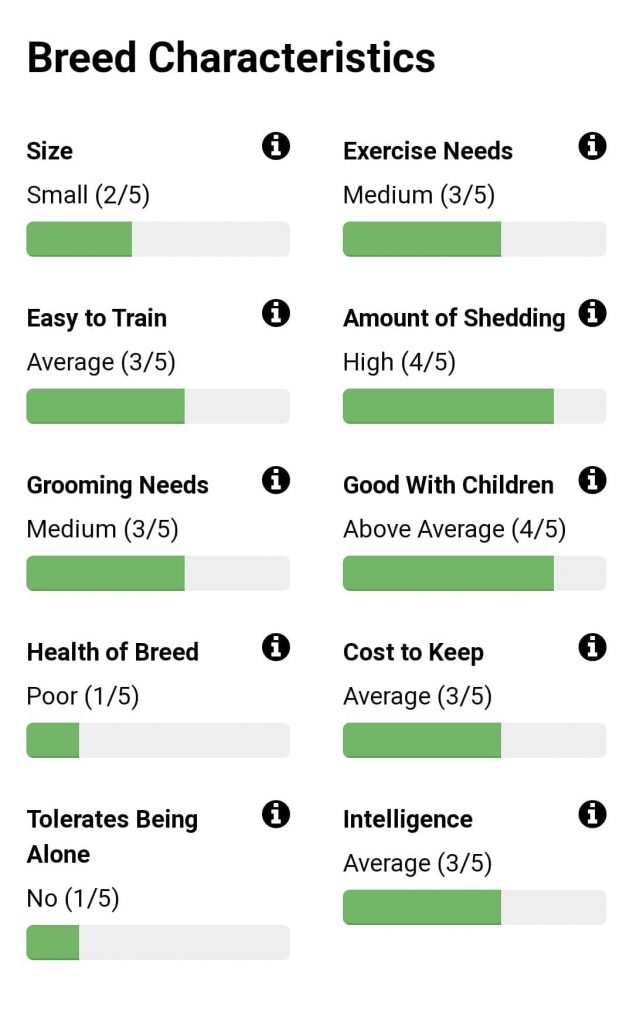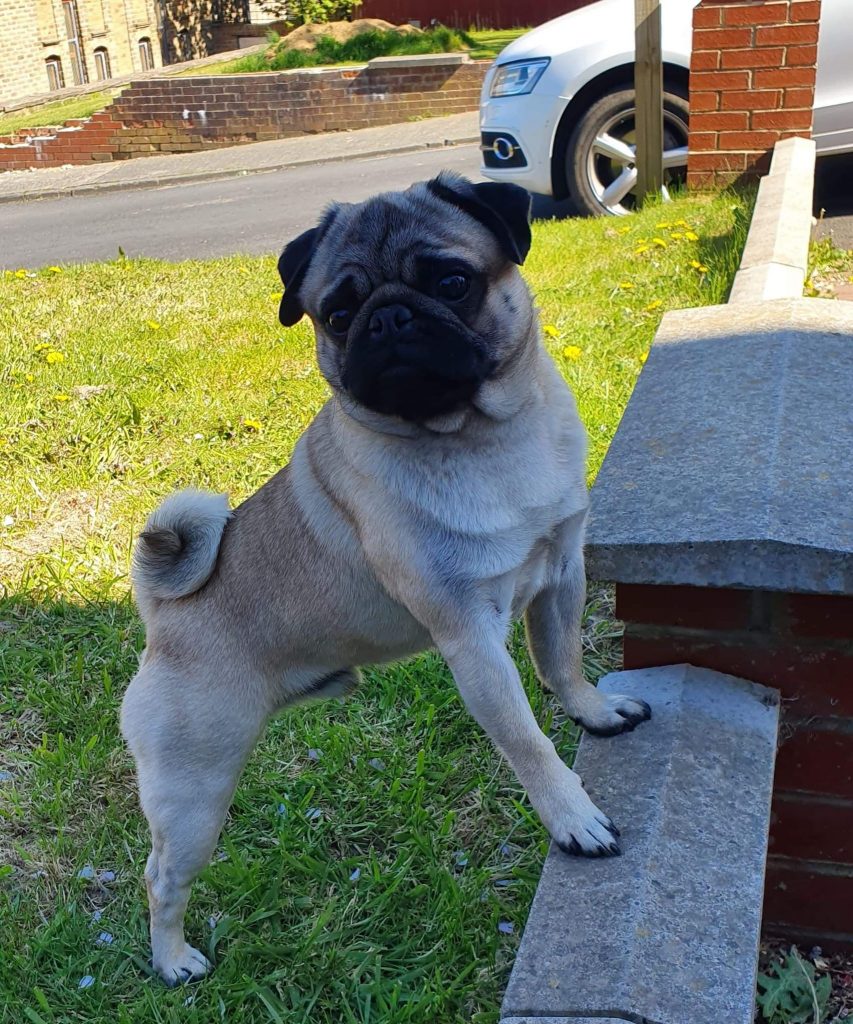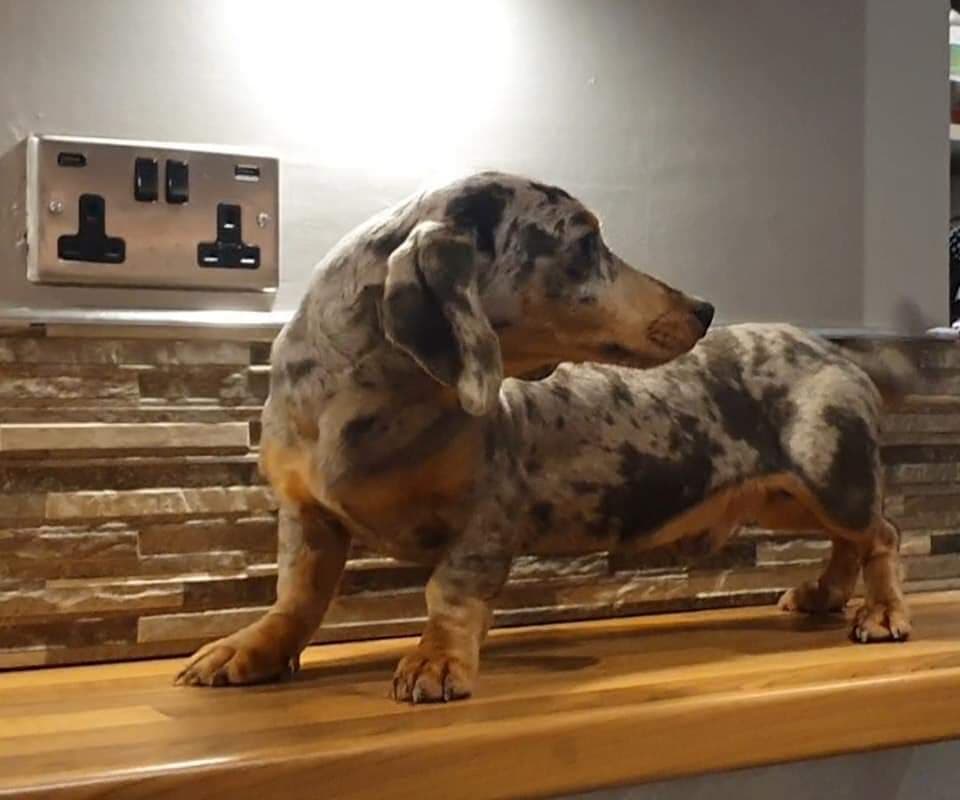The Pug is a breed of dog with physically distinctive features of a wrinkly, short muzzled face, and curled tail. The breed has a fine, glossy coat that comes in a variety of colour, most often fawn or black and a compact square body with well-developed muscles.
The Pug remains one of the most popular breeds to own, not only here in the United Kingdom, but worldwide and for good reason. Pugs may be small in stature, but they have big personalities and are extremely intelligent little dogs. They are confident by nature with an affectionate and mischievous side to their natures that endears them to just about everyone they meet. They adapt well to family life and other lifestyles which are just some of the reasons they have remained just as popular today as they were centuries ago. Pugs are incredibly people-orientated and hate it when left on their own for any length of time, but once you’ve shared a home with a Pug, there’ll be no going back.


Pugs are well known for their kind, sweet nature which is why they have remained such popular companions throughout the centuries. Some people say that sharing a home with a Pug is more like living with a small child than a dog, which is especially true when it comes to their need for attention. Pugs are ultra-sociable and they thrive on being around people. They do not do well left on their own for any long periods of time. If they are left to their own devices for hours on end, Pugs can become a little destructive around the home through sheer boredom and because they can develop separation anxiety.
Miniature Dachshunds like their larger cousins like to be kept busy and once they are fully mature they love being out and about which usually sees an owner tire out a lot faster than their small canine companions. They are highly adaptable although not the best behaved when it comes to obedience more especially if the “hound” in them takes over and they decide to go off exploring an interesting scent. With this said Miniature Dachshunds are the perfect choice for people who lead less active lives and who would like to share their time with a loyal loving and devoted small canine companion at their side.
The Miniature Dachshund is a very intelligent little dog and one that boasts a tremendous amount of courage which at times can prove their downfall. They are extremely loyal characters that form strong bonds with their owners and families. They may be small in stature but the Miniature Dachshund is an energetic dog and as such they like nothing more than to be out and about doing something. They have a tremendous amount of stamina which means they are quite happy to be given as much exercise as possible when they are fully grown.
Being so intelligent they also need to be given a lot of mental stimulation every day for them to be truly happy well-rounded characters. With this said a Miniature Dachshund is quite happy to relax and chill out when they are tired. The old adage of a “tired dog being a good dog” is never truer than when describing a Miniature Dachshund.
They can be quite vocal especially when there are any strangers about or when they don’t like something that’s happening in their environment. They have quite loud barks considering their small size and will be quick to warn their owners if anything is amiss. Although friendly by nature they tend to be aloof and wary of strangers although rarely would a Miniature Dachshund show any sort of aggression towards a person they don’t know preferring to keep their distance and bark until they get to know someone.
Because they form such strong bonds with their owners and more especially with the person who usually takes the most care of them these little dogs really do not like being left on their one for any length of time. If they are they are more than likely to suffer from quite severe separation anxiety which can see dogs developing unwanted and quite destructive behavioral issues around the house. This includes chewing on furniture and anything else they find which is how dogs alleviate stress levels. They can be quite difficult to house train but with a lot of patience and understanding a Miniature Dachshund can be taught to be clean around the home and to do their “business” outside.

© 2020 – 2022 ALL RIGHTS RESERVED. MIZBROWNS BRADFORD